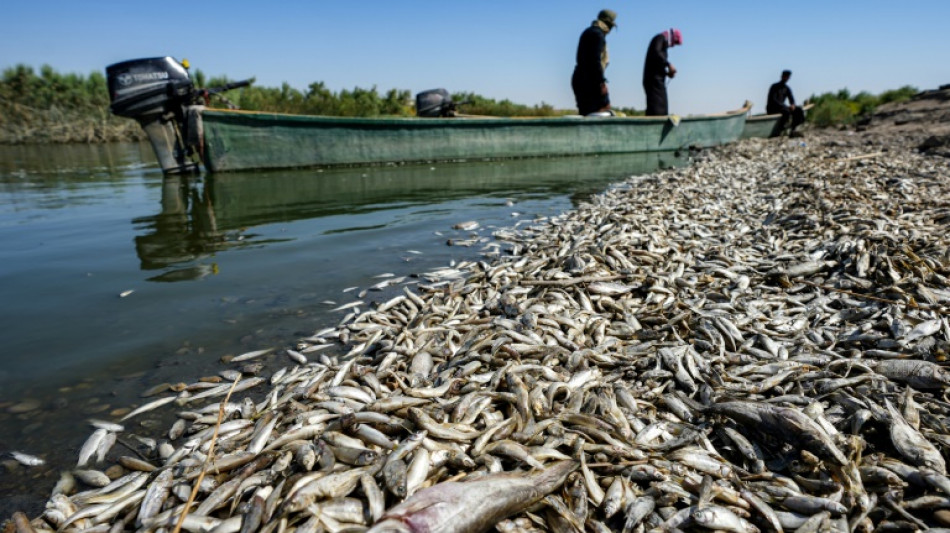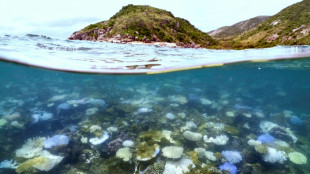

Dead fish wash up on riverbank in drought-hit Iraq
Thousands of dead fish have washed ashore in southeast Iraq, prompting an official investigation into the wildlife disaster that officials said Monday may be linked to drought conditions.
An AFP photographer saw thousands of small fish washed up on the banks of the Amshan river in Majar al-Kabir, an area in Maysan province that borders Iran.
The region is home to fabled marshes in the floodplain of the Tigris river, already suffering from the effects of global warming.
Iraq's agriculture ministry on Sunday announced it was forming a committee to look into the causes of the fish deaths, according to state news agency INA.
Environmental campaigner Ahmed Saleh Neema said "a rise in temperatures" leading to increased evaporation, coupled with reduced water flow contributed to "a lack of oxygen and high salinity" in the river.
Largely arid Iraq is ranked by the United Nations as one of the world's five countries most impacted by some effects of climate change.
It endures blistering summer heat and frequent dust storms. Declining rain over the past four years as well as upstream dams have reduced the flow of the Tigris and Euphrates rivers where ancient civilisations flourished.
Khodr Abbas Salman, a Maysan province official overseeing its marshes for the Iraqi environment ministry, told AFP that "according to terrain analyses we have conducted, the level of oxygen (in the water) is zero, in addition to a rise in salinity levels".
He joined a mission on Monday to inspect the deaths of "tonnes" of fish, he said, noting the Amshan's waters are home to nine species.
The fish "keep dying even now", he said.
Samples from both the fish and the water will be "analysed... to determine if there is any presence of chemical substances", Salman added.
But the high salinity levels may be enough to cause considerable damage.
The water can no longer "be used for agriculture. It would scourge the land if farmers use it for irrigation", Salman said.
He warned of further risks of pollution in the water and surrounding lands the more animals die.
"Any dead animal rots... which raises the level of pollution," he said. "The water's toxicity might increase and infiltrate the land too."
In a similar phenomenon in 2018, fishermen in the central province of Babylon found dead carp in their thousands, but an investigation failed to discern what had caused it.
L.Olinger--LiLuX



